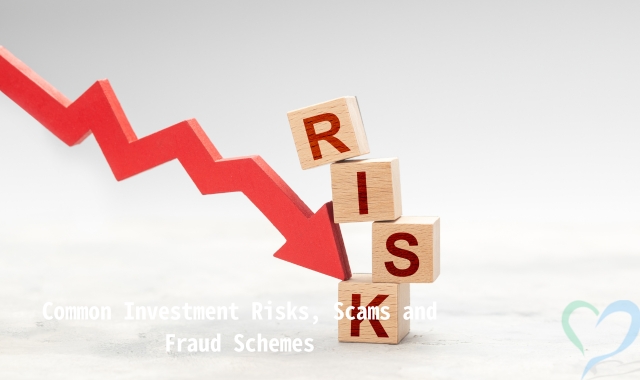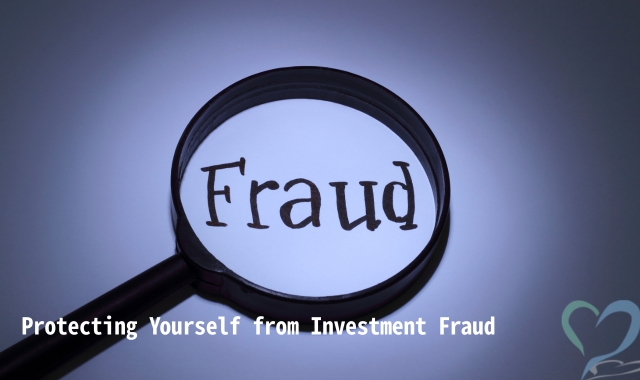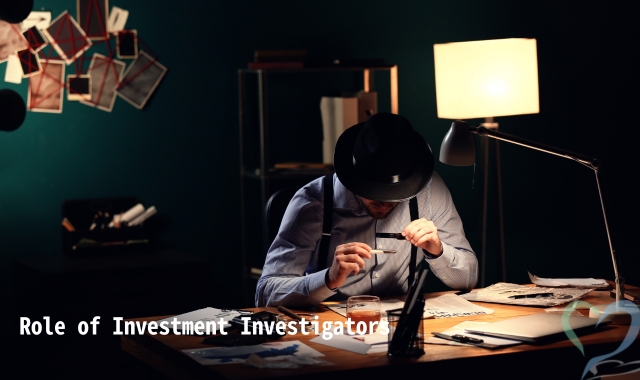Uncovering the Truth | Investment Investigations
NEWS

The global investment landscape can be both exciting and treacherous. And navigating it can sometimes become complex, especially when considering international markets like the United States and Japan. Both countries offer many amazing opportunities, but their regulations, market practices, and risk factors differ greatly. Investors, especially those looking to invest in foreign markets face a unique set of challenges. Countries often have differing regulations, market practices, and risk profiles. So understanding these nuances is mandatory for investors seeking to protect their assets. For such investors, understanding these differences is essential to maximizing returns, and investment investigations are essential tools for identifying risks, being sure of compliance, and detecting potential fraud. Whether conducting due diligence or simply wanting to stay on the right side of the law, these investigations provide peace of mind, and protect both individual and corporate investors. And in today’s increasingly interconnected world, such investigations are becoming ever more indispensable for those engaging in investments across international borders.
In this article, we’ll explore the more common aspects of investment investigations. We’ll look into types of investments, common risks, different kinds of frauds, and the benefits of conducting thorough checks using professional investigators. Additionally, we’ll study the details of investment investigations in Japan, and compare them to similar operations conducted in the United States. The goal is to provide a general guide for English-speaking investors seeking clarity and protection with regards to investing in the Japan.
Understanding Investments

The term “investment”(投資, toshi) covers a wide variety of asset classes, including stocks, bonds, mutual funds, and real estate. Each category comes with distinct advantages and challenges that must be considered carefully by investors. In Japan, investments more often tend toward stable assets like government bonds (国債, kokusai) and domestic real estate. These options appeal to conservative investors who are looking for long-term stability. Conversely, the United States presents a broader choice of opportunities, including high-risk, high-reward ventures like technology stocks and cryptocurrencies.
Types of Investments

Stocks are a popular choice because of their potential for high returns, but they are affected by the volatility of the market. Bonds provide a steady income stream, but typically yield lower returns compared to equities. Mutual funds allow investors to diversify their risk by combining resources into a professionally managed portfolio. Real estate is considered to be a more tangible and secure asset, and it offers long-term value appreciation and the possibility of even more returns in the form of rental income.
Investment Strategies

Successful investing requires a clear strategy that accounts for the investor’s risk tolerance. Risk tolerance is an investor’s willingness to lose some (or all) of an investment for the possibility of earning more from the same investment. Conservative investors may prefer the stability of bonds or index funds, while aggressive investors might focus on equities or alternative assets. For example, the regulatory frameworks between Japan and the United States differ considerably. And this has influenced the investment culture in both countries.
Japanese investment culture traditionally prefers a cautious approach that focuses on long-term stability. In this way, Japanese investors protect their investments from any negative effects caused by changes in the market. Popular investments in Japan tend to be government bonds, real estate, and blue-chip stocks. This contrasts with the United States, where investors tend to take more risks for the chance to quickly gain more from their investments. Investors there are generally more aggressive, and more frequently seek out technology stocks, innovative companies, and venture capital.
Understanding one’s risk tolerance is crucial in creating an effective investment portfolio. A well-balanced approach minimizes potential losses during market downturns and ensures sustained growth over time. For example, dividing investments across many different types of asset classes can provide a cushion against volatility while capitalizing on growth opportunities.
Common Investment Risks, Scams and Fraud Schemes

Investment fraud is a widespread issue in the world of investments. It affects every type of investment asset in every country, and undermines trust and financial stability. Scams such as Ponzi schemes, pyramid schemes, and pump-and-dump tactics exploit investor trust to generate illegal profits. In Japan, corporate fraud often takes the form of falsified financial statements or insider trading. These specific types of fraud present unique challenges to the country’s regulatory authorities.
One notable example occurred in Tokyo in 2020, where a $30 million fraud case involved the falsification of bond investments. Such cases stress the importance of vigilance and proactive measures in protecting assets. By understanding common fraud schemes, investors can better recognize and avoid potential pitfalls.
Identifying Red Flags and Warning Signs

Identifying the warning signs of fraud is essential for safeguarding investments. Common indicators of fraudulent activity are promises of guaranteed returns, high-pressure sales tactics, and a lack of transparency. In Japan, foreign investors may face additional challenges due to their unfamiliarity with the country’s unfamiliar and complex regulatory frameworks. This makes investors from overseas particularly vulnerable to exploitation.
Thorough due diligence can help identify these red flags early, and prevent unnecessary financial losses. The due diligence process involves verifying the legitimacy of investment opportunities, assessing the credibility of involved parties, and consulting with experienced advisors to ensure that transactions and investments are protected.
Protecting Yourself from Investment Fraud

Proactive measures for preventing investment fraud include verifying the credentials and licenses of investment firms, conducting independent research on opportunities, and consulting with legal and financial experts. In the United States, the Securities and Exchange Commission (SEC) makes resources available for verifying potential investments. Similarly, Japan’s Financial Services Agency (FSA) provides support for verifying the credibility of financial institutions and opportunities.
By employing these strategies, people can prevent mistakes and make safe choices. Staying informed about evolving market trends and regulatory changes also enhances one’s ability to navigate potential risks effectively.
Role of Investment Advisors and Bankers

Investment advisors and bankers are often the first line of defence in guiding individuals and organizations through the complex landscape of financial markets. In Japan, financial institutions also often adopt conservative practices that prioritize client safety and regulatory compliance. Meanwhile, U.S. advisors may suggest more ambitious strategies to take advantage of new market trends and innovations in technology.
Choosing reputable advisors is the best way to create customized plans that also match the investor’s specific financial goals. The advisors use their expertise to help people understand detailed regulations, assess market opportunities, and construct portfolios that balance risk and reward. By being trustworthy and transparent, these professionals help clients make informed decisions, invest their money safely, and maximize returns.
Role of Investment Investigators

Advisors and bankers may have client safety in mind, but, in the end, they also have a responsibility to maximize return. However, the main goal of investment investigators is to minimize risk. These types of investigations offer many advantages that improve financial security and decision-making.
Employing investigative services is an important step in detecting misrepresentation, fraudulent schemes, and unlawful practices before committing funds. But investment investigators do not only look for illegal activities. Investigations also ensure compliance with local and international rules to protect against legal complications and regulatory errors. Through their work, these services make all parts of transactions visible to investors, and give a clear view of all financial activities, partnerships, and market conditions. And they instil the confidence needed to proceed with complex financial transactions.
Investigators use their expertise and knowledge to help clients identify and address vulnerabilities before they are exploited. They use various methods such as advanced forensic accounting, digital tracing, and market analysis to provide investors with reliable information, and ensure a secure financial environment. The benefits of using one of these firms extends beyond the financial security of one individual, company, organization, or firm. In the wider sense, they contribute to the long-term stability of the entire global market.
Common Types of Investment Investigations in Japan

Due Diligence Investigations
Due diligence is a fundamental process used to assess potential investments. In Japan, this involves verifying financial records, legal compliance, and the stability of operations. For foreign investors, this can be especially difficult. Their lack of knowledge and understanding of cultural nuances and business practices may be absent or flawed when they are actually critical. Comprehensive due diligence reduces these risks of such unforeseen liabilities, and ensures secure and profitable investments.
In practice, due diligence generally involves evaluating a company’s financial health. But it can also mean analyzing market trends, and assessing the reputability of key stakeholders. By addressing these factors, investors gain a clearer understanding of potential opportunities and challenges, enabling them to move forward with decisions.
Fraud and Corruption Investigations
Fraud and corruption investigations target unethical practices such as embezzlement, bribery, and financial misrepresentation. In Japan, corporate culture often emphasizes discretion, which may make it challenging to uncover such activities without specialized expertise. Investigative professionals rely on the meticulous study of all related documentation. Even requesting insider testimonies is not unheard of. They use these in-depth procedures to build credible cases against any wrongdoing.
These investigations not only protect investors but also promote ethical business practices. By holding individuals and organizations accountable, the investigators contribute to a healthy and trustworthy financial ecosystem.
Insider Trading Investigations
Insider trading remains a significant concern in Japan’s financial ecosystem. Cases related to this practice often involve senior executives who have leveraged confidential information in order to attain personal gain. This undermines market integrity. In such instances, investigative efforts focus on monitoring stock activity, communication records, and other indicators of suspicious behavior to identify potential violations.
Through such rigorous detective work and enforcement, insider trading investigations help maintain fair and equitable market practices. These efforts are essential for preserving investor confidence and ensuring a level playing field for all participants.
Market Manipulation Investigations
Market manipulation distorts fair trading practices. This affects both investor confidence and market stability. Common manipulation tactics include spreading false information to inflate stock prices or artificially influencing market conditions. Investigators obtain data from financial markets, social media platforms, and other sources to expose any existing manipulation schemes.
By addressing these activities, market manipulation investigations uphold the principles of transparency and fairness in trading. This fosters a more stable and reliable investment environment for all stakeholders.
Cybercrime and Hacking Investigations
Cybersecurity threats are a growing risk to investors, And as technology becomes more advanced, hackers are increasingly able to target more sensitive financial data. In Japan, cases of cybercrime often involve sophisticated phishing attacks, ransomware, and unauthorized access to critical systems. Specialized cybercrime investigators employ digital forensics, threat analysis, and recovery techniques to trace cybercriminals and mitigate potential losses.
Investigations identify and manage such cybersecurity challenges, protect assets, and maintain the integrity of financial operations. As technology continues to evolve, proactive measures against cyber threats will become even more of a cornerstone when managing investment security.
Summary

In the high-risk and always changing world of international investments, managing investments requires an approach that analyzes many different factors. While the markets offer diverse opportunities, they also present unique challenges and risks. Understanding these is crucial for investors seeking to protect their assets and maximize returns. Investment investigations play a pivotal role in reducing these risks. And as the world of finance continues to evolve, and the global financial landscape continues to become more interconnected, the need for competent and aggressive investigative services is becoming even more necessary. The role of investment investigations will only become more critical in ensuring the long-term sustainability and integrity of investors and global markets.
Our firm specializes in conducting thorough investment investigations. With offices in Japan, Asia, and the U.S., we provide assistance with confidently securing your investments, and expert guidance tailored to your needs. Contact us today.
- The Mystery of Johatsu: Japan’s Vanishing People Phenomenon
- Uncovering the Truth | Investment Investigations
- Real Estate Investigations: Safeguarding Your Investments
- Employee Background Check at Branches in Vietnam: Key Points for Risk Management
- Employee Background Check at Branches in Thailand : Key Points for Risk Management
- Finding Your Fiancée Who Disappeared After Getting Engaged Overseas